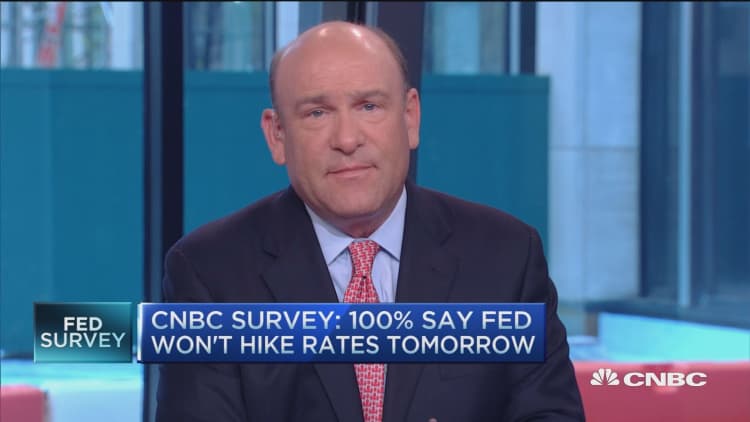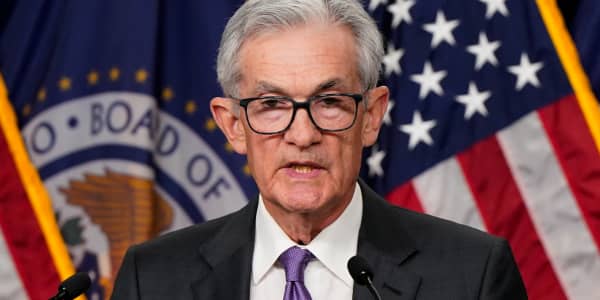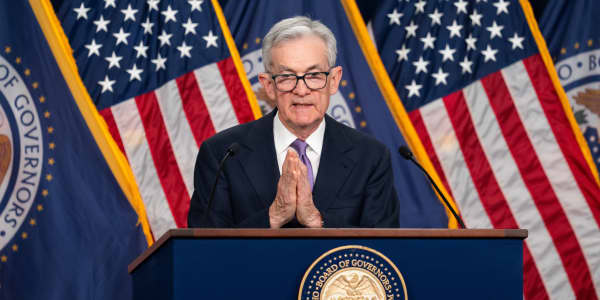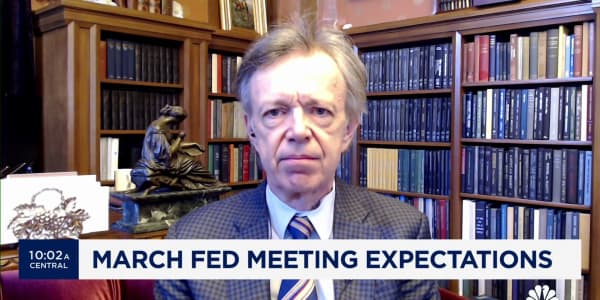
The latest CNBC Fed Survey shows Wall Street anticipating a more dovish Fed in April than it did back in March, with the next rate hike not expected until much later this year.
Fully 100 percent of the 48 respondents to the survey, including economists, strategists and fund managers, are sure the Fed won't hike at its meeting this week. But 94 percent say the next move will be to hike rates. The next hike, on average, isn't expected until August, two months later than anticipated in the previous survey. And respondents don't see rates taking off after that. They lowered their funds rate forecast for 2016 to just 0.78 percent, compared with the current target of 0.38 percent. The rate is seen remaining low in 2017 at just 1.4 percent, 17 basis points less than forecast in the March survey.
"The Fed should be cautious until the 2 percent price stability target clearly is in sight,'' Allen Sinai, chief global economist of Decision Economics, wrote in response to the survey.
Expectations for when the Fed will allow its balance sheet to decline and reach its terminal fed funds rate were also pushed back. The Fed is not seen reducing the balance sheet until next March, one month later than forecast last month. And the central bank won't finish hiking until the third quarter of 2018, also a quarter later.
The responses suggest that the Fed has been successful at convincing markets it will hike only gradually over the next few years.
"(Fed Chair Janet) Yellen is dovish and she continues to punch above her weight on the FOMC," said Thomas Costerg, senior economist of Standard Chartered Bank.
But all don't agree that the Fed's dovish course is the right one. Some think the Fed has to act now to stave off inflation. "The U.S. economy is fast approaching full-employment and targeted inflation,'' wrote Mark Zandi, chief economist of Moody's Analytics. "Any risks to the economic outlook are fading. The Fed must soon resume normalizing monetary policy or risk an over-heating economy."
The likelihood of the U.S. entering recession is seen at just 21 percent, its lowest level since September and down nearly 8 points from January, when fears were rampant of a slowdown. Still, Wall Street has continued to lower its estimates for growth this year and next, with GDP now expected to be 1.95 percent for 2016, 19 basis points lower than in March and below 2 percent for the first time since the question was first asked a year ago. Global economic weakness remains the biggest threat to the U.S. economic recovery, followed by tax and regulatory policies.
"The U.S. economy is lackluster as is corporate investment,'' writes Constance Hunter, chief economist of KPMG LLP. "This means more ho-hum growth in the U.S. driven by consumption and housing investment. It's a 2.0 percent world."
Respondents are modestly bullish on stocks in the medium term expecting the S&P 500 to gain 7 percent by the end of 2017. But short term, investors think stocks are fully valued, with the S&P seen rising just 1 percent for the rest of the year. Meanwhile, the outlook for 10-year Treasury yields is at its lowest level since December 2014, with survey respondents seeing the benchmark yield ending the year at just 2.1 percent, down 22 basis points from the March survey. CPI forecasts remain around 1.7 percent for this year and just above 2 percent for 2017.
The CNBC Fed Survey was conducted Thursday and Friday.
Correction: This story was revised to correct that the Fed is meeting this week and to correct the bank's name to Chartered and the typo in KPMG.








